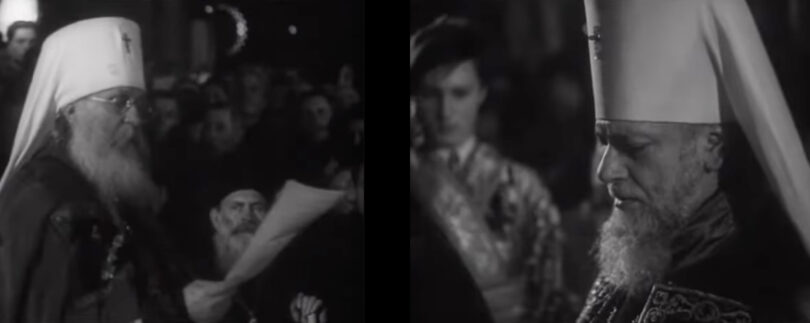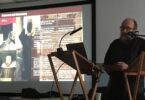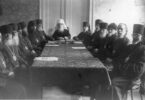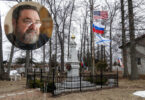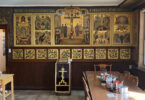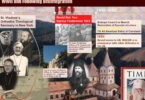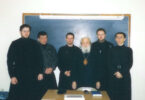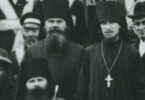The All-Russian Council of the Russian Church concluded its work on February 2, 1945.
When, in the 1930s, Metropolitan Sergii (Stragorodskii) responded to those bishops who accused him of overstepping his authority, he begged them not to breach ecclesiastical communion with him, but wait for an All-Russian Council, a sequel to the 1917 Council. In 1943, Metropolitan Sergii was elected patriarch by a Council of Bishops. (The ROCOR bishops in Europe did not recognize this election.) The sequel to the All-Russian Council of 1917-1918 assembled on January 31, 1945, to elect a successor to Patriarch Sergii, who passed away in 1944. Below, I am quoting from a polemical treaty on this event written by Fr. George Grabbe, “The Canonical and Legal Position of the Moscow Patriarchate.”
When the All-Russian Council was electing a patriarch in 1917-1918, it had full freedom of choice. Three candidates were chosen by vote, and the election was completed by drawing lots between those three. The election of Metropolitan Alexei to the patriarchal office, however, proceed-along different lines. The first meeting of the Council took place on 31 January, 1945. There were two subjects on the agenda: the election of a patriarch and the confirmation (not the working out) of a “Statute of Administration of the Russian Orthodox Church”, which was to replace the statute that had been worked out as a result of numerous meetings and after thorough discussions during free debates at the All-Russian Council in 1917-18.
The Council of 1945, however, met only twice. The first meeting, was to a great extent, devoted to the solemn reception of important foreign guests invited to attend. After the greetings and welcoming speeches, a report was given by the “Locum Tenens” “on the patriotic activities of the Church during the war.” It was only after the reading of that political report and the voting of a resolution upon it that the draft of the “Statute of Administration of the Russian Orthodox Church” was heard. This important document did not provoke a single objection — “so thoroughly was it prepared as far as both its canonical basis and its practical details were concerned.” (Mitropolit Sergii I Ego Dukhovnoe Nasledie [Patriarch Sergei and his “Spiritual Inheritance”], p. 324, [Moscow, 1947]).
Everybody knows, even a person with scarcely any experience in the conduct of public meetings and the submitting of drafts for legislation, that in a free atmosphere such drafts, no matter how thoroughly they may be prepared, always draw certain objections, require changes or modifications, corrections, etc. Only the particular conditions existing in the USSR allowed such an important document, and one which is far from being uncontroversial, to be approved and accepted without encountering any objections. This statute has been seriously criticized by Prof. Kolesnikov [of Holy Trinity Seminary] in the publication of the Synod of Bishops of the Russian Orthodox Church Outside of Russia, [Tserkovnaia Zhizn’] Church Life. The criticism appeared in an article called “An Analysis of the Statute of Administration of the Russian Orthodox Church”, which appeared in the above publication on January 31, 1954.
An even stronger impression of fraud in the case of that Council — the participants in which were completely deprived of free choice — is given by the so-called “election” of the Patriarch, which took place the next day. The election was carried out by open vote and was, of course, unanimous.
This was a citation from Fr. George Grabbe. Nowadays the statuses of All-Russian Council in Russia and All-Diaspora Council are similar. They only can be assembled when Bishops’ Council deem it is necessary.
Fr. George Grabe rose legitimate points regarding problems with the All-Russian Council of 1945. However, to go beyond the polemical stage he should have pointed out that the canonical status of the Russian Church Abroad was also canonically unprecedented. Thankfully, now, we can afford having such a thoughtful, reflective conversation.

